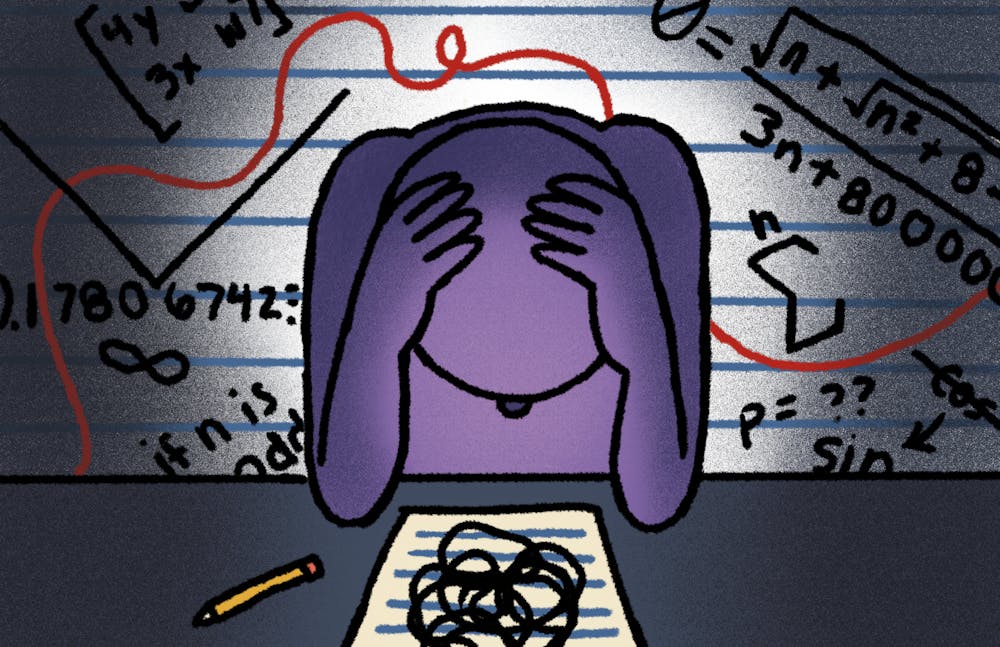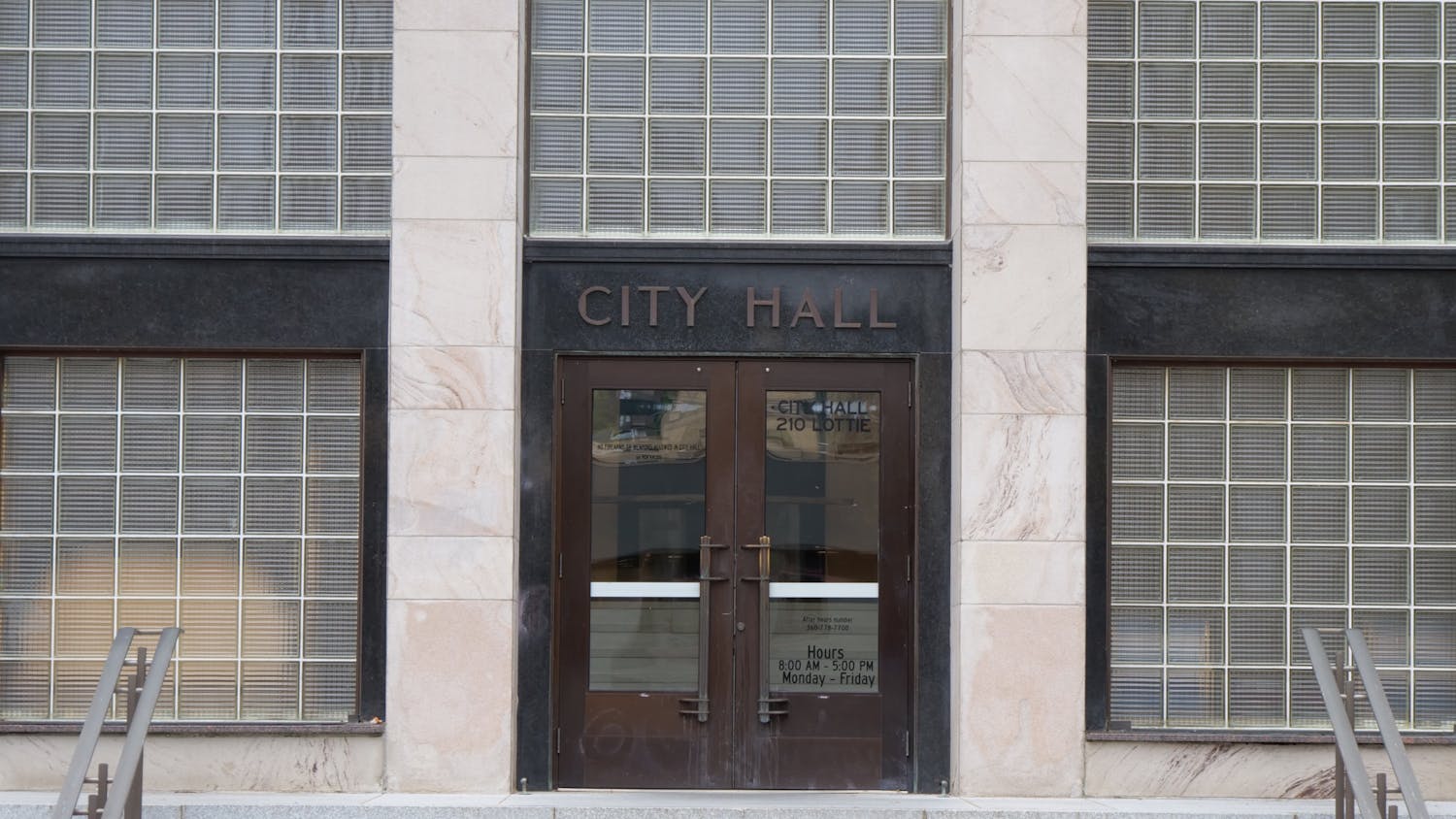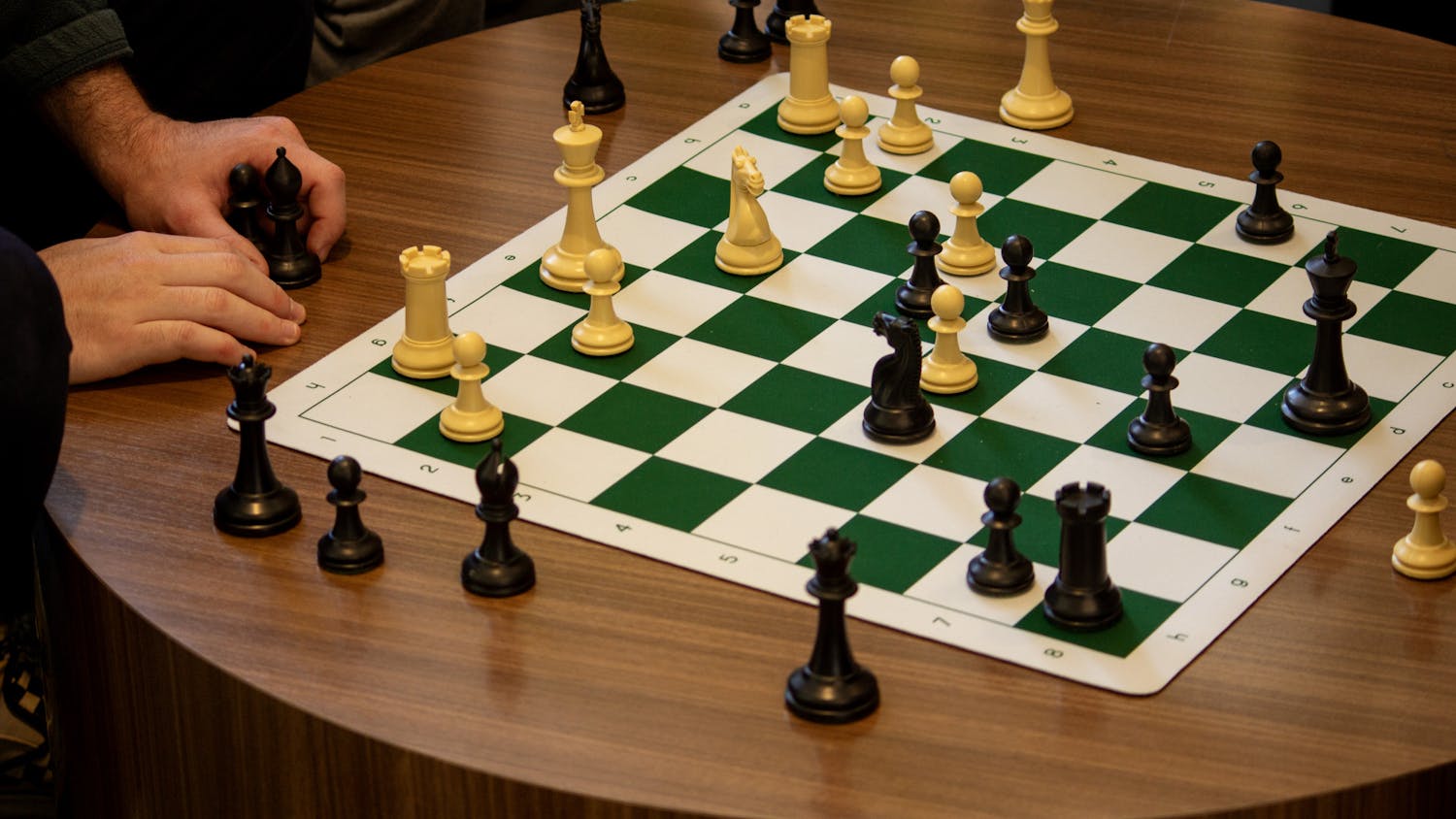During my first year, I lost track of how many times I heard my roommates complain about Western Washington University’s Math 112 class.
I remember sitting in the Atrium diligently helping my roommate study for her test. She felt confident, only to text me afterward that she bombed it.
I began to wonder what the root of the issue was. Why were so many students failing Math 112?
According to the Office of Institutional Effectiveness, the drop/fail/withdrawal rate of students in Math 112 during the 2022-2023 school year was 32.2%.
The pattern of failures continues every quarter – Western needs to rework its approach to helping students.
Math 112 is 50 minutes long, takes place each school day of the week, and has a quiz every Friday. Daily homework is due an hour after class the following day, according to Abigail Means, a second-year student at Western who took the class her first quarter at the university.
“It was like a constant cycle of falling behind and trying to catch up,” Means said. “I was always trying to keep my head above water.”
Despite earning As and Bs throughout high school, Means struggled to pass this class altogether.
If hardworking students are all failing the same class, it’s clear that the students are not the problem – it’s the class itself. I think I speak for most students that making the workload more manageable and for homework to be graded on completion rather than accuracy would improve our progress.
Whether it be friends or classmates, almost all the Math 112 students I knew complained about their instructors’ lack of experience in teaching.
Many of the instructors are graduate students, expected to teach for the first time after completing their undergraduate degree. Although the instructors had an easier time teaching those who excel in math or are STEM majors, they had a hard time teaching those who struggle with math, according to the students taking Math 112.
“Those are the types of [students] that my professor was able to teach,” Means said. “But in regards to me and my roommate and a lot of other people, it was so difficult.”
Teachers should be capable enough to help students of all learning types. While I know this isn’t the graduate student's fault, the plain truth is that students are suffering from the lack of teacher experience in classrooms.
If the instructors leading the class don’t know how to help struggling students, the Math 112 teaching curriculum should be changed to prepare instructors to teach math.
On top of that, many students go to office hours or the Tutoring Center for more help outside of the classroom. Although these resources are convenient for students struggling in class, most students shouldn’t need to use them.
I admit that I view office hours and the Tutoring Center as a last resort for my classes – it’s not that I don’t find them effective, but rather I am typically able to solve the problem myself.
“I spent about 16 to 18 hours in the tutoring center,” Means said. “I would be going every day because I needed to get my homework done and I had no idea how to do it.”
My old roommate used to come home hours after her classes were done. I found out she’d been at office hours or the Tutoring Center the whole time getting help on her math homework.
I was confused to see everyone put so much time into Math 112 only to end up bombing it. If it were me, I’d probably have dropped it after the first week. I thought it was crazy how much work was required for a class that most students only took to fulfill their General University Requirements.
Christopher O’Dell, a graduate mathematics teaching assistant at Western, explained how grad students are supposed to run the Math 112 course.
“We are allotted 20 hours a week,” O’Dell said. “We certainly use all 20 of those hours. I’m supposed to do the homework I assign, making the lesson and not just reading off my lead instructor’s plan.”
Grad students have weekly meetings with the other TAs and the lead instructor to go over the lesson plans.
Instructors are overwhelmed with work and sometimes it’s hard to help students. Many end up working past their paid time to ensure their students’ success.
Erin Grimes, a graduate mathematics teaching assistant at Western, worked up to 40 hours a week when her appointment explicitly caps her paid time at 20. This meant a lot of unpaid labor going into the university.
“I'm doing that because I personally can and because I care about my students. But this is not right,” Grimes said. “We need to have boundaries. If I hadn't done this, a good proportion of my students probably would have failed.”
How could a class be so troublesome not just for students, but for instructors as well?
I couldn’t understand how something that clearly needed to be addressed hadn’t seen change yet.
On the bright side, the math department has been working to enforce several changes to Math 112.
One change for Math 112 is the department implementing smaller class sizes, said Western’s Mathematics Department Chair David Hartenstine.
“We get a huge number of students that come to Western who need to take math classes, their backgrounds vary, their experiences with math vary,” Hartenstine said. “[The mathematics department] provides personalized attention to make sure that students are taking the appropriate math class.”
Western’s math department also discussed designing a new class for students a little below the threshold for Math 112.
The proposed class, Math 109, provides an alternative to fulfilling the math GUR credits. Moreover, it will prepare students who are looking to take Math 112 in the future.
Changes in the class workload, teacher experience, and grading policy are all essential factors in preventing more students from failing.
While it’s great that Hartenstine and the math department are implementing changes, I’m still worried that students will end up failing math because of the demanding curriculum.
“Math is universal,” Grimes said. “I come at this from the perspective that mathematics is for everyone. Math belongs to everyone.”
I get where Grimes is coming from. Unfortunately, it’s hard to see how math is universal in a class where students are continually failing.
Jordan Brotamonte (she/her) is an opinions reporter for The Front this quarter. In her free time, she skis, takes photographs, and spends most of her time trying new coffee shops around Bellingham or exploring new places outdoors. You can reach her at jordanbrotamonte.thefront@gmail.com.






